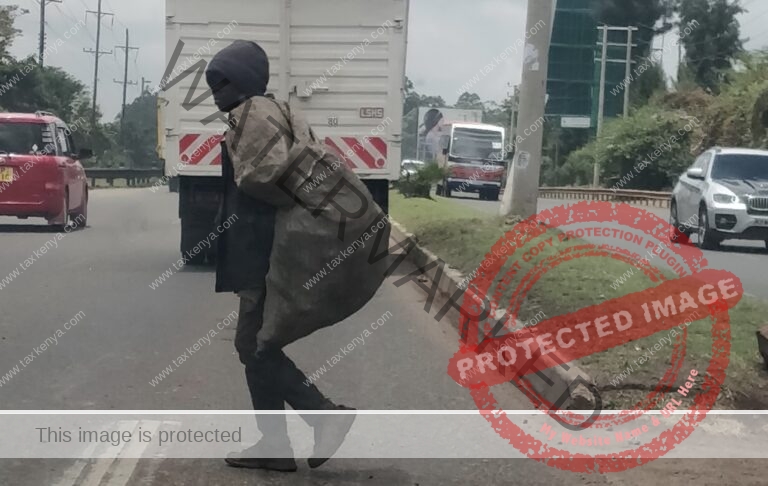Introduction
In the recent past, there has been a lot of noise about the potential and actual increase in tax rates in the betting and related activities industry.
(Post continues after the photo.)

Three reasons have contributed to this:
a. Aggressive marketing by the betting companies (who in Kenya does not know about Sports Pesa?).
b. The reported huge wins resulting in some Kenyans becoming millionaires overnight ( a million here, a few million there, hundreds of millions all over etc.).
c. Concern for the sudden craze and interests in betting and related activities yet these activities have all along been there. This resulted in Betting, Lotteries and Gaming Amendment (2016) Bill which is still lying in Parliament.
When the Cabinet Secretary (CS) to the National Treasury increased the tax rates in each category, there were mixed reactions from the industry and the participants.
What is it about the tax rates?
The tax rates went up to 50 %. This is a very high tax rate considering that the highest income tax rate is 37.5 % for non-residents. However, currently, this tax rate is comparable to domestic excise tax rate for plastic shopping bags at 50 % and processed tobacco at 130 % of the excisable value (this is a post for another day),
One question we should ask is this: Do we understand the taxation of the betting and related activities in Kenya? Every Kenyan who is interested in this industry should get a copy of Betting, Lotteries and Gaming Act (2016) Cap 131 and any previous and/or subsequent amendments that have been affected since 1966 when the first regulations on the industry were laid down in our dear country.
Betting, Lotteries and Gaming Act (2016) Cap 131 sets out the rules and regulations of betting, lotteries, gaming and prize competitions in Kenya. The Act has been amended several times since its inception. In this post, we will explain briefly the activities and the taxes applicable currently under CAP 131.
1.Betting
In Kenya, according to the Act, betting transactions “include the collection or payment of winnings on a bet and any transaction in which one or more of the parties is acting as a bookmaker. Hence, betting is a game. In the betting, there is a bet and bookmaker.
Who is a bookmaker?
According to the Act, a bookmaker is defined as any person:
- Whether on their behalf or as a servant or agent carries on whether occasionally or regularly the business of receiving or negotiating bets.
- A person who holds himself out in any manner as a person who receives or negotiates bets.
- A person who permits himself to be held out in any manner as a person who receives or negotiates bets.
Betting tax
A betting tax is chargeable under Part III (29)(A) of the Act. The tax is on the betting game revenue. According to the Act, gaming revenue is “gross turnover less the amount paid out to customers as winnings”. Therefore, if all the bets placed amount to kshs 100,000 and the winnings are kshs 40,000 betting tax will be on kshs 60,000.
Tax period
Betting tax is accounted for one calendar month. That is from the beginning of the calendar month to the end of the calendar month in. The tax authority wants to know the amount of the revenue from betting for the whole month, the winnings and the balance which is subject to tax.
Betting tax rate
The current betting tax rate in Kenya is 50 % of the revenue from betting per calendar month. The tax rate is effective in 1st January 2017.
Responsibility
Betting tax is established and remitted by a licensed bookmaker to KRA.
When is the tax due?
Betting tax is due by the 20th day of the following month after the tax period.
Where is the tax paid?
Betting tax is paid to the Collector by the licensed bookmaker. Currently, the Collector is the Commissioner General who is appointed under the Kenya Revenue Authority Act (1995).
2. Lottery
The CAP 131 defines lottery in Kenya as “including sweepstakes, raffle, and any scheme or device for sale, gift, disposal or distribution of any property depending upon or to be determined by lot or chance, whether by the throwing or casting of dice or by withdrawing of tickets, cards, lots numbers or figures or using a wheel or otherwise”. The keyword is a chance.
Lottery tax
A lottery tax is chargeable under Part IV (44)(A) of the Act. The tax is on the lottery turnover. According to the Act, lottery turnover is gaming revenue which is “gross turnover less the amount paid out to customers as winnings”.
Tax period
Lottery tax is accounted for one calendar month just like betting tax. The period is from the beginning of the calendar month to the end of the calendar month.
Lottery tax rate
Effective 1st January 2017, the current lottery tax rate is 50 % of lottery turnover during any the tax period.
Responsibility
The person responsible for remitting lottery tax is the person who is authorized to promote the lottery.
Tax due date
Lottery tax is due by the 20th day of the following month after the tax period.
Where is it paid?
Lottery tax is paid to the Collector by the person authorized to promote the lottery. Currently, the Collector is the Commissioner General who is appointed under the Kenya Revenue Authority Act (1995).
3. Gaming
According to CAP 131, gaming is “playing a game of chance for winnings in money or money’s worth.”
Gaming tax
Gaming tax is chargeable under Part V (55)(A) of the Act. The tax is on gaming revenue. According to the Act, gaming revenue is “gross turnover less the amount paid out to customers as winnings”.
Tax period
Gaming tax is accounted for one full calendar month. The calendar month is from the beginning of the month to the end of the month.
Gaming tax rate
The current gaming tax rate is 50 % of the gaming revenue per month. The tax rate is effective 1st January 2017.
Responsibility
Gaming tax is remitted by the person carrying on the gaming business.
When is the tax due?
Gaming tax is due by the 20th day of the following month after the tax period.
Where is the tax paid?
Gaming tax is paid to the Collector by the person carrying out a gaming business. The Collector is the Commissioner-General appointed under the Kenya Revenue Authority Act (1995).
4. Prize competitions
Under CAP 131, prize competitions are when “permits are issued authorizing the promotion and conduct of prize competitions success of which depends to a substantial degree upon the exercise of skill in connection with any trade or business or sale of any article to the public”.
Prize competitions tax
A prize competitions tax is chargeable under Part VI (59)(B) of CAP 131. The tax is on the entry to a competition which is premium rated. The tax is levied on total gross turnover.
Tax period
The prize competitions tax is for every calendar month: from the beginning of the calendar month to the end of the calendar month.
Prize competitions tax rate
The current prize competitions tax rate in Kenya (on the cost of entry to a competition) which is premium rate is 50 % of the total gross turnover. The tax rate is effective 1st January 2017.
Responsibility
Prize competitions tax is remitted to the Collector by the licensed person.
When is the tax due?
The prize competitions tax is due by the 20th day of the following month after the tax period.
Where is it paid?
The prize competitions tax is paid to the Collector by the licensed person. The Collector is the Commissioner General who is appointed under the Kenya Revenue Authority Act (1995).
Therefore Betting, Lotteries and Gaming Act (2016) Cap 131 covers four activities: betting, lotteries, gaming and price competitions. We hope that this post has clarified some of the misconceptions about the taxation of the betting, lotteries, gaming and prize competitions.
The tax rates increase was on the revenues of the owners of betting, lotteries, gaming and price competitions businesses. However, the direct effect on the people who participate in activities is that the businessmen may decide to reduce the winnings.
Feel free to send us questions or topics on tax and investments in Kenya that you would wish to be covered in this Website.
Disclaimer
This post is for general overview and guidance and does not in any way amount to professional advice. Consequently, www.taxkenya.com, it’s owner or associates do not take any responsibility for results of any action taken on the basis of the information in this post or for any errors or omissions. Kenyan taxpayers must always rely on the most current information from KRA. Tax industry in Kenya is very dynamic.
©Wakaguyu Wa Kiburi
[about-me id=”1″]
Email: taxkenya@gmail.com
Twitter: @taxkenya
Facebook: fb.me/taxkenya
Youtube: youtube/taxkenya.com shows



